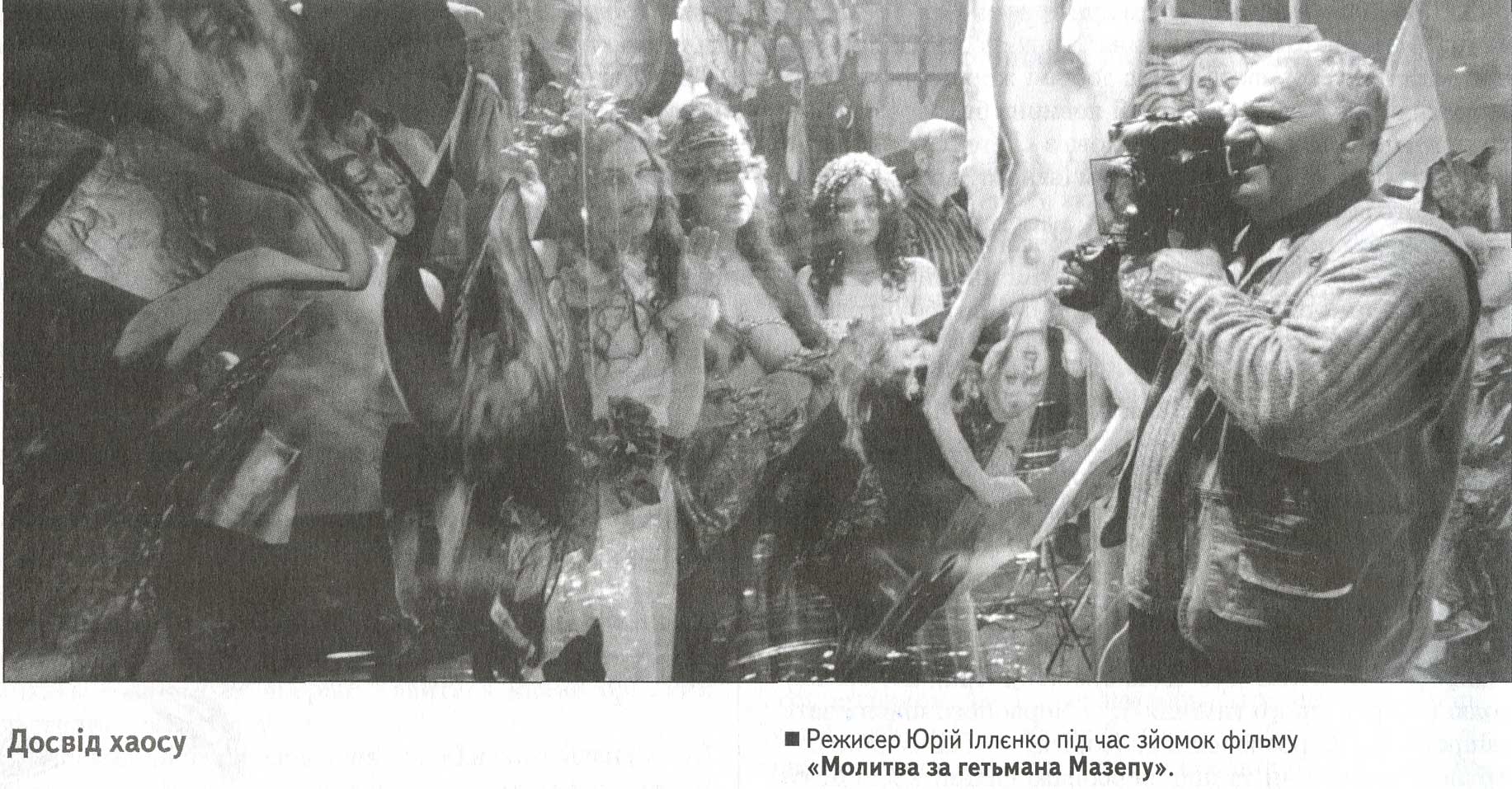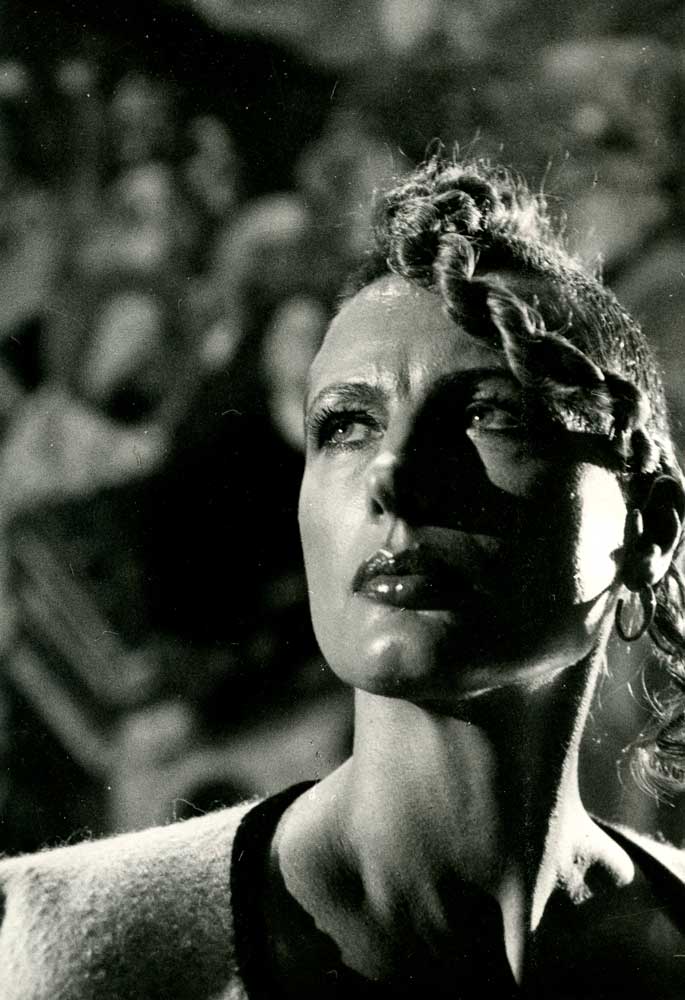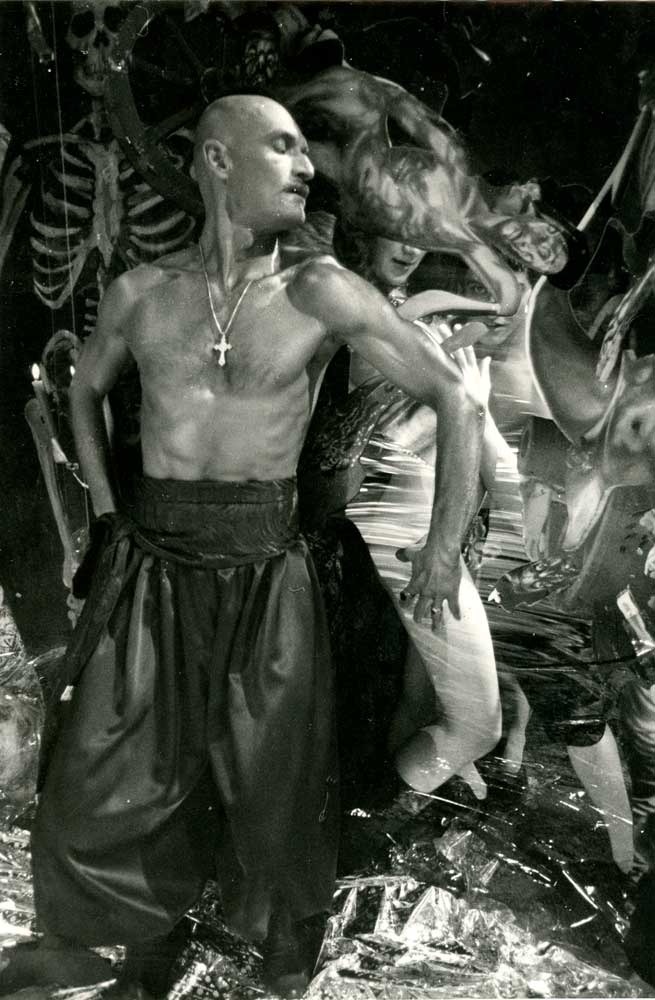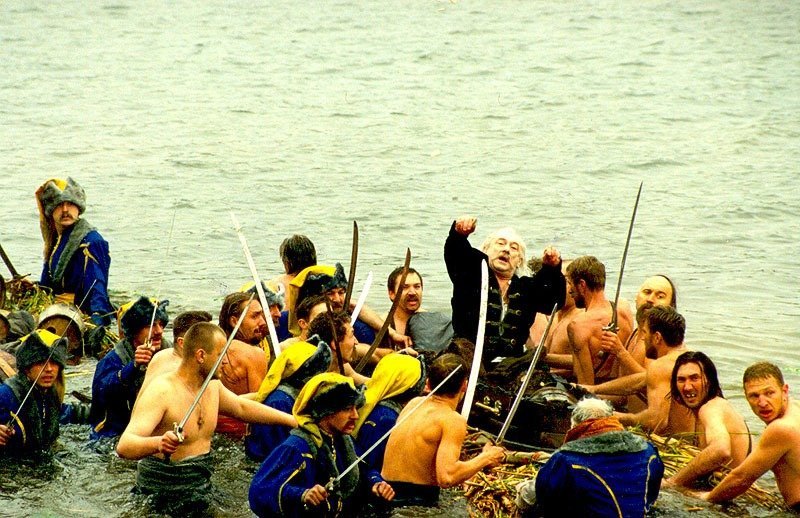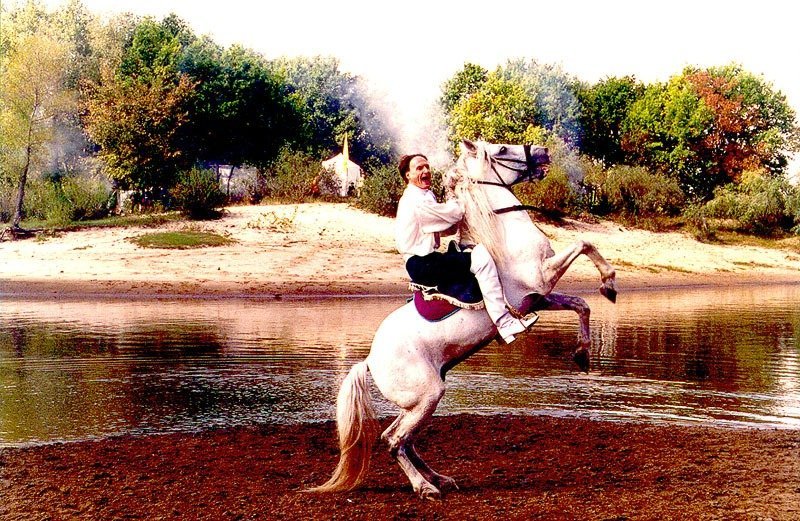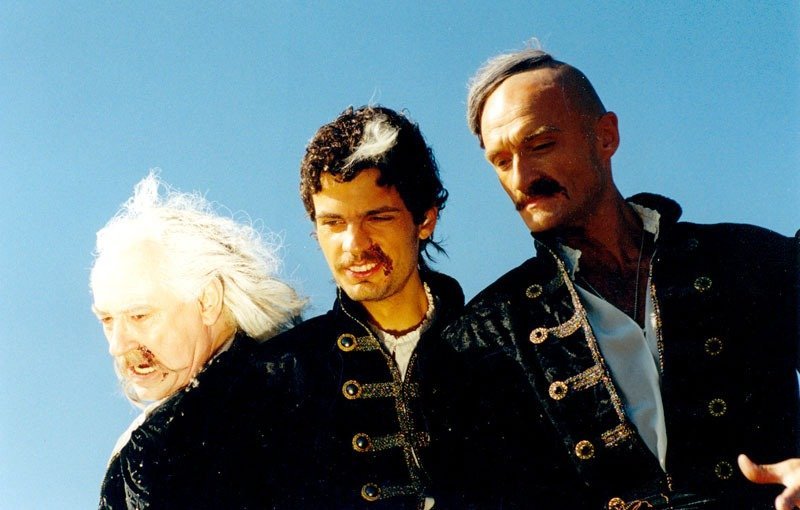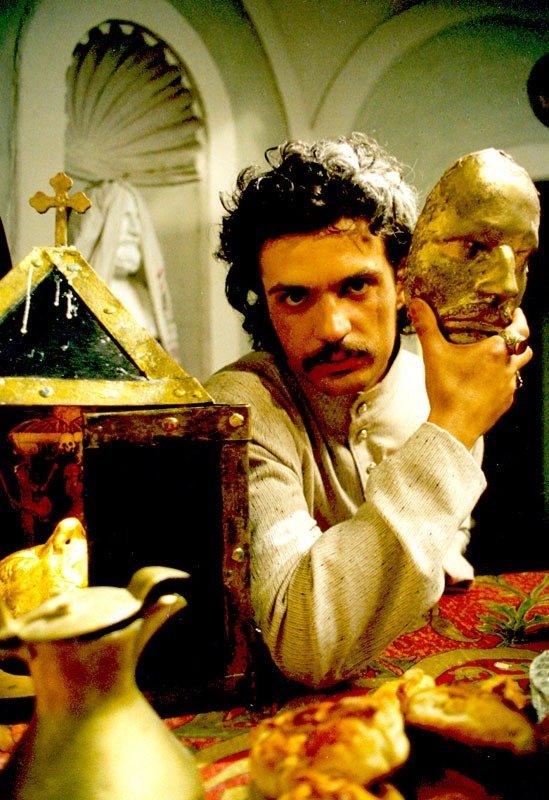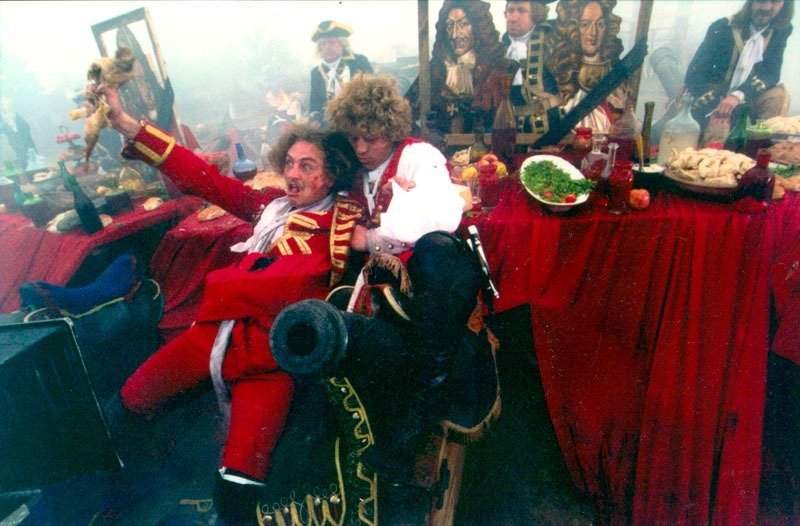
A Prayer for Hetman Mazepa / Molytva za hetmana Mazepu
2001
Ukraine
Oleksandr Dovzhenko Film Studio, Rodovid
154 min
Yurii Illienko
Yurii Illienko
Yurii Illienko
Bohdan Stupka, Liudmyla Yefymenko, Viacheslav Dovzhenko, Nikita Dzhygurda, Serhii Romaniuk, Viktor Demertash, Kateryna Lisovenko, Pylyp Illienko, Serhii Marchenko, Maryna Petrenko, Les Serdiuk, Ostap Stupka, Mykhailo Holubovych, Oleh Drach, Dmytro Myrhorodskyi, Raisa Nedashkivska, Kost Stepankov
Ivan Mazepa lies peacefully in the coffin, yet even in death, he instills fear in the destroyer of Poltava, the Russian ruler Peter I. Enraged and teetering on the brink of madness, the Tsar appears at the burial, determined to obliterate any remnants of memory related to the Ukrainian Hetman. However, Mazepa emerges from the grave and recounts his life story to the enemy.
Yurii Illienko’s final film swiftly transforms from its opening frames into a metacommentary to himself. Ukrainian cinema, which languished due to insufficient funding during the 1990s, emerges from obscurity, simultaneously vibrant and eerie. The baroque polysemy and poeticism of the film tradition from the 1960s and 70s, from which Illienko emerged as a director, takes on the form of a derisive folk theater in the context of the new Ruina (historical period of Ukrainian decline under Russian dominion). True to the spirit of a remarkable B-movie, A Prayer for Hetman Mazepa is both absurdly unconventional and surprisingly eloquent: the author’s profound historical reflections become enmeshed in a campy screen spectacle, as Illienko’s screenplay, originally titled Insatiable, unexpectedly—perhaps even to the author himself—transforms into a radical artistic expression.
Within Ukrainian cinematic circles, tales abound regarding the protracted production of the film under the auspices of high-ranking government officials at the corrupt Dovzhenko Film Studio. The much-anticipated premiere of the film, akin to the film’s content, evolves into yet another performative act. Yurii Illienko himself exerted every effort to alter the trajectory of the out-of-competition screening at the 2002 Berlinale, a subsequent scandal precipitated by complaints from the Russian Ministry of Culture, and the film’s challenging fate within its homeland due to the same controversy.
At the Berlin World Premiere, constrained by financial limitations, the film was presented in an unfinished version with monaural sound, which was subsequently illicitly disseminated by movie pirates for years to come. Meanwhile, Illienko continued refining the film and enhancing the soundtrack, infusing it with extensive first-person commentary. The director’s definitive version, dated 2010 and titled A Prayer for Hetman Mazepa. New Version, is in some ways even more audacious than the montage version showcased in Berlin. Illienko has birthed a cinematic phenomenon devoid of a conclusive rendition, perhaps destined to possess multifaceted interpretations—thus, he ultimately attains the artistic pinnacle akin to his revered Orson Welles.
